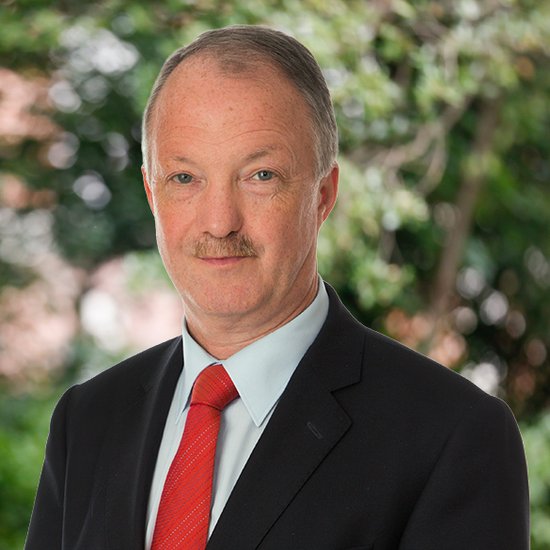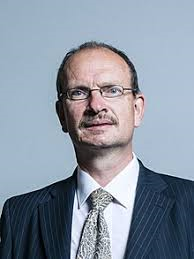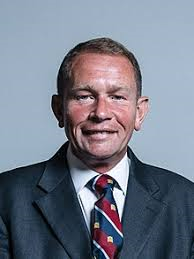UK MPs who support Simpol
Citizens:
Thanks to your support, the MPs in the following constituencies have signed the Simpol Pledge. If your constituency isn't in the list below, your MP needs to hear from you! Sign on to Simpol to encourage them to sign it.
MPs or party candidates:
If you would like to support Simpol, you can see and sign the Pledge here. Questions? Please see our FAQs for MPs and parliamentary candidates.
Quick links:
Pledged MPs England
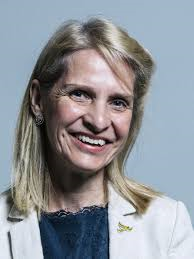
Wera Hobhouse MP (Liberal Democrats)
Pledged: 3rd May 2015
Comment: "As a committed internationalist I recognise the benefits of working across borders to solve global problems."

Sian Berry MP (Green Party)
Pledged: 24th June 2024
Comment: "Global co-operation is essential to tackling many of the crises we face today and I support the thinking behind the Simpol approach."

Carla Denyer MP (Green Party)
Pledged: 9th May 2019

Callum Anderson MP (Labour)
Pledged: 6th December 2019

James Frith MP (Labour)
Pledged: 25th November 2019

Daniel Zeichner MP (Labour)
Pledged: 17th October 2007
Comment: "The world is changing rapidly and progressive politics must not be limited by out-dated national boundaries. ... I want to work with like-minded people to challenge inequality, prejudice and ignorance wherever it occurs. We are all in this together, and must work together to meet the challenges ahead."

Bobby Dean MP (Liberal Democrats)
Pledged: 13th June 2024
Comment: "The Issues of climate change, tax avoidance and others are close to my heart as a Liberal. As a Liberal, I believe in the freedom and opportunity for each individual to realise their potential. These issues will and are affecting everyone on this planet. It is only natural for a Liberal to want to work with the international community to try to solve them for the benefit of all. I am happy to support the Simultaneous Policy Campaign to take a step in the right direction."

Tom Morrison MP (Liberal Democrats)
Pledged: 6th June 2017

Marie Goldman MP (Liberal Democrats)
Pledged: 21st May 2019
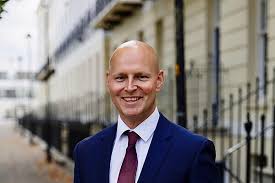
Max Wilkinson MP (Liberal Democrats)
Pledged: 6th June 2017

Sarah Gibson MP (Liberal Democrats)
Pledged: 1st June 2024

Taiwo Owatemi MP (Labour)
Pledged: 4th December 2019

Olly Glover MP (Liberal Democrats)
Pledged: 10th December 2019

Chris Coghlan MP (Liberal Democrats)
Pledged: 12th June 2024
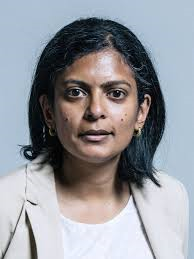
Rupa Huq MP (Labour)
Pledged: 4th December 2019

Grahame Morris MP (Labour)
Pledged: 13th April 2010
Comment: "The global financial crisis has shown how weak international cooperation has been in reaching agreement on fundamental regulations and policies across all borders. I support any efforts to bring greater cooperation between nations."
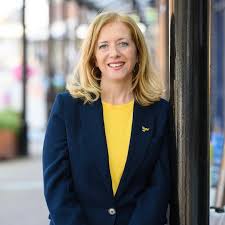
Liz Jarvis MP (Liberal Democrats)
Pledged: 13th June 2024

Kate Osamor MP (Labour)
Pledged: 5th June 2017

Charlotte Cane MP (Liberal Democrats)
Pledged: 20th June 2024
Comment: "Many of the big issues which we face, such as Climate Change, war, famine and migration are best solved through international cooperation."

Helen Maguire MP (Liberal Democrats)
Pledged: 7th June 2024

Monica Harding MP (Liberal Democrats)
Pledged: 11th June 2024
Comment: "I'm delighted to say that I support the Simpol campaign."

Claire Hazelgrove MP (Labour)
Pledged: 18th April 2010

Sarah Dyke MP (Liberal Democrats)
Pledged: 20th June 2024
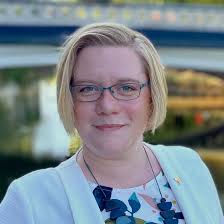
Zoe Franklin MP (Liberal Democrats)
Pledged: 1st June 2017

Tulip Siddiq MP (Labour)
Pledged: 29th May 2017

Victoria Collins MP (Liberal Democrats)
Pledged: 11th December 2019

Tom Gordon MP (Liberal Democrats)
Pledged: 15th June 2021
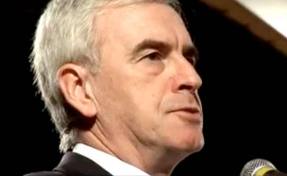
John McDonnell MP (Labour)
Pledged: 31st January 2005
Comment: "A simple initiative which deserves a chance to work".

Lisa Smart MP (Liberal Democrats)
Pledged: 18th May 2017

Freddie Van Mierlo MP (Liberal Democrats)
Pledged: 1st July 2024
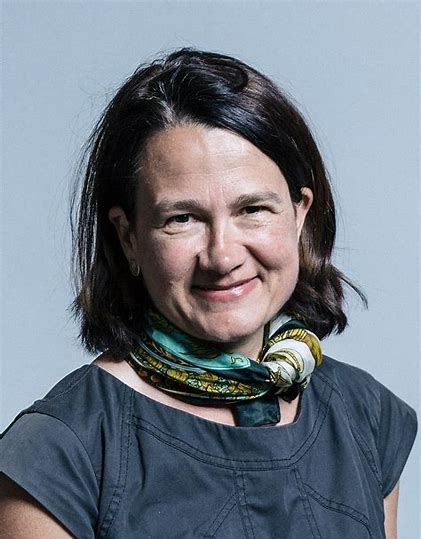
Catherine West MP (Labour)
Pledged: 27th January 2020

John Milne MP (Liberal Democrats)
Pledged: 20th June 2024

Richard Quigley MP (Labour)
Pledged: 6th December 2019

Sir Ed Davey MP (Liberal Democrats)
Pledged: 8th December 2019

Mike Wood MP (Conservatives)
Pledged: 1st May 2015

Alex Sobel MP (Labour)
Pledged: 10th March 2015
Comment: "The world is changing and our solutions must not be limited by national boundaries. I want to work with all those who want to challenge inequality, prejudice and support social justice wherever it occurs."

Fabian Hamilton MP (Labour)
Pledged: 10th May 2017

James MacCleary MP (Liberal Democrats)
Pledged: 26th June 2024

Vicky Foxcroft MP (Labour)
Pledged: 12th November 2019

Brian Mathew MP (Liberal Democrats)
Pledged: 6th June 2017

Vikki Slade MP (Liberal Democrats)
Pledged: 20th February 2015

Alison Bennett MP (Liberal Democrats)
Pledged: 13th June 2024

Lizzi Collinge MP (Labour)
Pledged: 28th November 2019

Mary Glindon MP (Labour)
Pledged: 29th April 2015

Catherine McKinnell MP (Labour)
Pledged: 26th April 2010
Comment: "So many of today's challenges need an international effort to combat them, so I am delighted to make my pledge to support Simpol."

Martin Wrigley MP (Liberal Democrats)
Pledged: 12th June 2024

Ellie Chowns MP (Green Party)
Pledged: 20th May 2017

Nadia Whittome MP (Labour)
Pledged: 21st November 2019
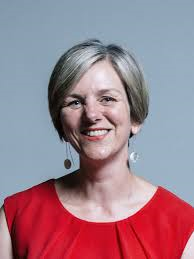
Lilian Greenwood MP (Labour)
Pledged: 27th November 2019
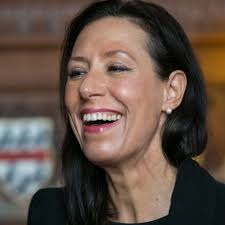
Debbie Abrahams MP (Labour)
Pledged: 9th December 2019

Layla Moran MP (Liberal Democrats)
Pledged: 28th April 2015
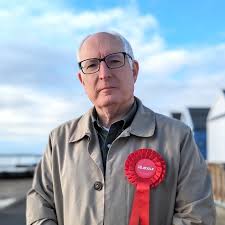
Neil Duncan-Jordan MP (Labour)
Pledged: 31st May 2024

Stephen Morgan MP (Labour)
Pledged: 8th May 2017

Fleur Anderson MP (Labour)
Pledged: 24th November 2019

Sarah Olney MP (Liberal Democrats)
Pledged: 29th November 2016

Sarah Champion MP (Labour)
Pledged: 30th October 2019

Rebecca Long Bailey MP (Labour)
Pledged: 5th June 2017
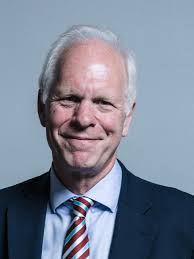
Nicholas Dakin MP (Labour)
Pledged: 19th November 2019
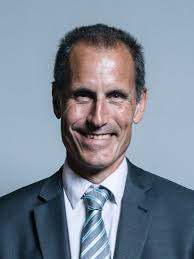
Bill Esterson MP (Labour)
Pledged: 27th November 2019

Clive Betts MP (Labour)
Pledged: 21st November 2019
Comment: "Cross-party collaboration is vital for solving the most pressing issues that we currently face. This is particularly pertinent with the climate emergency, with which we simply cannot afford to waste anymore time dividing along partisan lines. I am therefore more than happy to sign the Simpol Pledge and commit to working tirelessly cross-party to solve the most pressing issues of the day should I be fortunate enough to be re-elected."

Gill Furniss MP (Labour)
Pledged: 27th November 2019

Pippa Heylings MP (Liberal Democrats)
Pledged: 9th December 2019
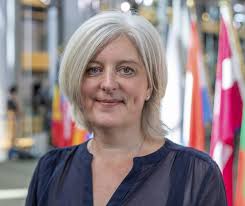
Caroline Voaden MP (Liberal Democrats)
Pledged: 5th June 2024

Emma Lewell-Buck MP (Labour)
Pledged: 6th June 2017

Terry Jermy MP (Labour)
Pledged: 10th June 2024

Daisy Cooper MP (Liberal Democrats)
Pledged: 15th November 2019
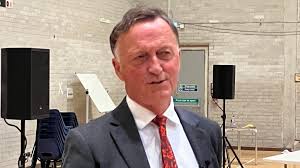
Andrew George MP (Liberal Democrats)
Pledged: 28th October 2004

Ian Sollom MP (Liberal Democrats)
Pledged: 6th December 2019

Kevin Bonavia MP (Labour)
Pledged: 8th December 2019

Navendu Mishra MP (Labour)
Pledged: 3rd December 2019

Gareth Snell MP (Labour)
Pledged: 30th November 2019

Manuela Perteghella MP (Liberal Democrats)
Pledged: 1st July 2024

Andrew Western MP (Labour)
Pledged: 11th November 2019

Luke Taylor MP (Liberal Democrats)
Pledged: 24th june 2024

Cameron Thomas MP (Liberal Democrats)
Pledged: 3rd June 2024
Comment: "I am an internationalist. In the pursuance of multilateral cooperation in tackling global challenges, I approve of your aims in principal, and look forward to collaborating on their furtherance. Thank you for inviting me to do so."

Claire Young MP (Liberal Democrats)
Pledged: 21st May 2017

Munira Wilson MP (Liberal Democrats)
Pledged: 10th August 2020

Adrian Ramsay MP (Green Party)
Pledged: 21st June 2024

Gen Kitchen MP (Labour)
Pledged: 3rd December 2019

Tessa Munt MP (Liberal Democrats)
Pledged: 5th June 2017
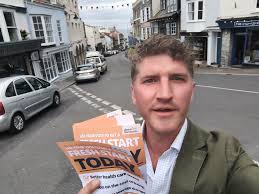
Edward Morello MP (Liberal Democrats)
Pledged: 14th November 2019

Derek Twigg MP (Labour)
Pledged: 25th November 2019

Paul Kohler MP (Liberal Democrats)
Pledged: 10th November 2019

Danny Chambers MP (Liberal Democrats)
Pledged: 14th June 2024

Will Forster MP (Liberal Democrats)
Pledged: 2nd June 2017
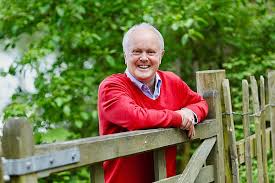
Clive Jones MP (Liberal Democrats)
Pledged: 19th April 2015

Rachael Maskell MP (Labour)
Pledged: 5th February 2020
Comment: "It is important to find new ways of extending democracy and enabling citizens to have a greater say over the policies which are determined in Westminster."
FAQ for Politicians
Simpol offers an alternative, yet complementary, approach to solving global problems. Current efforts at international treaty-making sponsored by the United Nations are revealing themselves to be inadequate and prone to failure. That's why Simpol is fast gathering increasing interest and support.
Moreover, in today's globalised economy where capital moves instantly across national borders and nations must compete to attract inward investment and jobs, the feasible parameters of government policy have become very restricted indeed. In practice, only market- and business-friendly policies are now permissible, so marginalising the interests of society and the environment. But it is becoming increasingly clear that this is a vicious circle that no nation can win, and all must ultimately lose.
Simpol is unique in offerring a transnational political process that allows everyone - citizens, MPs, political parties and governments - to participate in. Citizens in particular are signing on to the campaign, so making it in the growing electoral interests of politicians and parties to support the campaign.
To confirm YOUR support, please sign the Simpol Pledge. If you would like your party to consider making Simpol a part of its official policy, please download the Draft Party Resolution.
UN-sponsored international negotiations, for example on carbon emissions, have two major and potentially fatal draw-backs:
- They deal with only one issue at a time. This is problematic because, on any particular issue (eg. carbon emissions), there will always be winners and losers. And because only one issue is on the table, there is no way for losers to be compensated, so virtually assuring their non-cooperation.
- When it comes to global policy, the people have no say and effectively no sway on their governments. There is consequently no electoral pressure on governments - no direct political incentive for them to cooperate with one another.
Simpol solves both these problems. Firstly, by offering a multi-issue policy framework where nations that may lose out on one issue can gain on another, Simpol uniquely offers a far better prospect of getting all nations to co-operate. Moreover, by allowing citizens to use their votes to incentivise politicians and governments, Simpol may ultimately offer a more likely means of solving today's global problems. But whether it does or not, Simpol can be supported without compromising your party's policy or the government's position in current international negotiations. Simpol works in parallel, and so is entirely complementary to those efforts.
So please sign the Simpol Pledge and lend YOUR support to Simpol.
Simpol's policy content will, when the time comes, be developed by citizens via processes to be hosted by each national Simpol organisation, and overseen by the International Simultaneous Policy Organisation. These processes would be launched only once sufficient support in principle for Simpol was forthcoming from politicians around the world.
Should that point be reached, these policy development processes will allow supporters in each country to design, propose and refine Simpol's policies. For this, they may draw on proposals from NGOs, politicians, think-tanks or on those provided by their own chosen experts.
This would be followed by an international negotiation to arrive at a final set of measures to be implemented by nations globally and simultaneously. Prior to implementation, citizens in democratic countries would be invited to confirm their agreement.
In that way Simpol's policy content remains:
- Flexible: The policies remain open to revision at all times until the point of implementation so ensuring they are fully appropriate for then-prevailing world conditions;
- Democratic: Supporters joining the campaign after the launch of the policy development process would still have the opportunity to contribute until final policies had been internationally negotiated and agreed.
Simpol is also globally inclusive. Not only will it allow citizens in democratic countries to participate in developing policy, the governments of non-democratic nations would, at the appropriate point, be invited to participate in international negotiations to reach a final agreement.
Because policy development would only commence once sufficient support from politicians were forthcoming, politicians who sign the Simpol Pledge at this stage support to the campaign only in principle. Should the process for developing Simpol's policy content eventually commence and result in any international agreement, and had you already signed the Pledge, you would be invited to re-confirm your support prior to voting in parliament to implement those policies.
Thus, not only is your support for Simpol given only in principle at this stage, Simpol's policy development, when it occurs, would remain open, democratic and flexible at all times until implementation and you would be asked, at that point, to re-confirm your support. This means you can sign the Pledge without risk, and without coming into any conflict with your party's present policies.
To ensure Simpol only includes policies that genuinely require simultaneous implementation, the process incorporates a unique criterion for screening out national policies. In this way it achieves a healthy subsidiarity between the global level and the national level, so safe-guarding national sovereignty. This criterion is expressed in the following question:
Would the unilateral implementation of the policy by a single nation (or by a restricted group of nations) be likely to cause it a significant competitive disadvantage?
If the answer is:
- No: the policy does not qualify for inclusion in Simpol because it could be implemented by any nation (or restricted group of nations) alone.
- Yes: the policy qualifies for inclusion in Simpol.
In this way, only appropriate policies are included while the national sovereignty of all nations is maintained. By signing the Simpol Pledge you are therefore promoting your nation's interest to cooperate to solve global problems while still protecting its right to self-determination on all issues that have no international impact.
No, for several reasons:
- The development of Simpol's global policies remains an on-going work-in-progress at all times until Simpol's implementation. As such its policies, although emerging in outline, remain to be fully defined and are likely to remain flexible until shortly before implementation. As such, for the foreseeable future, signing the Pledge remains only a commitment in principle; a confirmation of your support only in principle for Simpol and the process it has set in train.
- Since Simpol's policies remain to be fully defined, there can be no conflict with your party's current international policies. Both you or your party as a whole can support Simpol in parallel to your present policies.
- Simpol's condition of simultaneous international implementation allows politicians to support important global policies but only on condition that they are implemented by all or sufficient nations together. So, not only can you support such policies without any risk to national economic competitiveness, you can be seen to advocate them while making clear the condition for your support; that condition being, that the policy is to be implemented simultaneously, only when all or sufficient nations also do so. If all nations move together, we all win.
So, carry on supporting your party, but support Simpol too. Doing so is a risk-free, win-win proposition! Please confirm your support today by signing the Simpol Pledge.
There are many advantages:
- Credibility: By supporting Simpol, you are identifying yourself as a politician who supports a practical solution to global problems. Supporting Simpol allows you to go beyond the confines of party policy to reach out to the growing body of voters who increasingly care about global issues but who have become disillusioned with party politics.
- Extra Votes: By supporting Simpol, you make yourself eligible to receive the votes of citizens who support the campaign. They are committed to giving strong preference to candidates who have signed the Pledge, to the probable exclusion of those who haven't. With support for Simpol growing, it makes sense to make sure that you've signed the Pledge.
- Leading the Way: By supporting Simpol, you are joining a growing body of parliamentarians, statesmen, economists and thought leaders who realise that the world needs a way out of its present dilemma and that neither the UN nor traditional party politics, important though they are, can deliver on global challenges. You came into politics to make a positive difference to the world. Supporting Simpol offers you a complementary way to do that.
So please sign the Simpol Pledge today.
Yes. But why would you want to?
- Since Simpol's policies remain to be developed and wouldn't be implemented until all or sufficient nations support the campaign, they remain only a potential. Your or your party's support for Simpol at this stage therefore means supporting Simpol only in principle. So there is no risk and there can be no conflict with your party's policies.
- If you sign the Pledge, your national Simpol organisation will normally publicise that Pledge to all its supporters, so indicating who they should give strong voting preference to at the next election. But if you decided to cancel your Pledge, we would, of course, publicise that too. So, to cancel your Pledge makes no sense. It would only invite our growing block of supporters not to vote for you.
- Bear in mind, too, that one or more of your political competitors in your constituency may sign the Pledge. So, if you were to cancel your Pledge, you would only be putting yourself at a competitive disadvantage.
In short, you can of course revoke your Pledge at any time if you wish, but there's really no reason to, and every reason not to. So please show yourself to be part of the global political solution by signing the Simpol Pledge.
Non-democratic countries are unlikely to be the first to support Simpol. But as democratic countries are gradually driven to sign the Pledge, the incentive and pressure on non-democratic countries to join the process will increase.
The governments of non-democratic countries can sign the Pledge at any time and pass it into law. Since no electoral pressure can be applied in such countries, what is their incentive for signing?
- Many such countries are relatively poor, so they would have much to gain from the kind of policies likely to be included in Simpol. Apart from solving problems like climate change, these would likely raise considerable revenues, a portion of which could be distributed to such countries on a debt-free basis.
- Many non-democratic countries are frustrated at the international community’s present lack of action and their own lack of influence. Many would want to sign the Pledge to set an example to the richer, more powerful countries.
- As the campaign develops and its public profile grows, Simpol would increasingly be accepted as the world’s most likely means of solving global problems. As non-democratic countries witness how democratic governments are being driven by citizens to sign the Pledge, and as they begin to see the benefits of global cooperation, they will not want to be left out of the process.
Political parties may officially support Simpol by passing a resolution at their annual party conference (or in whatever forum is legally charged with policy making). Please download the template resolution in support of Simpol for consideration by your party.
For more background on why supporting Simpol makes political sense for your party, please contact us requesting our Political Parties Prospectus.

Resources for politicians
Online Pledge Form for MPs or Candidates
What our MPs say about Simpol...

Barbara Keeley MP
Labour, Worsley & Eccles South
Pledged: 8th March 2015
"There are so many complex issues facing Governments today, from climate change to the global financial crisis. It is clear that we need international efforts to deal with them. For this reason, I am delighted to pledge to support Simpol."
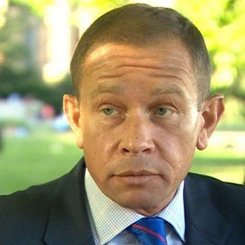
Philip Hollobone MP
Conservative, Kettering
Pledged: 7th December 2006
"If the world can act together to tackle global issues then the greater the chance of success."
Comments from previous candidates...

Stephen Worrall (Liberal Democrats) High Peak
"The idea behind Simpol seems so simple yet I think it could prove incredibly powerful and you and your colleagues should receive full credit for developing it. Global problems require global solutions and Simpol could well help us get to those solutions.
The way in which the process neatly side steps the issue of countries fearing to act unilaterally is quite excellent. I have signed the pledge and thank you for inviting me to do so."
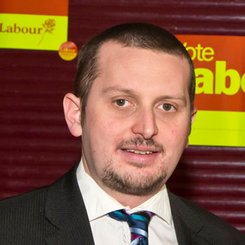
Andrew Adams (Labour) N. W. Hampshire
"I have signed up to the pledge having received several emails from constituents, thanks for promoting what is an imaginative and thought provoking effort to tackle some of the biggest problems facing the world."

Phil Chandler (Green Party) Morecambe & Lunesdale
"I have signed your pledge with delight. I very much admire the way you and SIMPOL have pursued this idea over what must be decades. It seems completely the correct way to proceed."

Darren Price (Labour) Congleton
"...as PPCs we are repeatedly advised against 'signing up for anything' for very good reasons in the most part. I see this more as a way of operating/thinking rather than a binding commitment to a specific issue or cause and therefore a little different. I'd be interested to hear anyone argue against it!"

Pramod Subbaraman (Liberal Democrats) Edinburgh South
“I really like the Simpol approach. Global problems do need co-ordinated global efforts and global solutions.”



